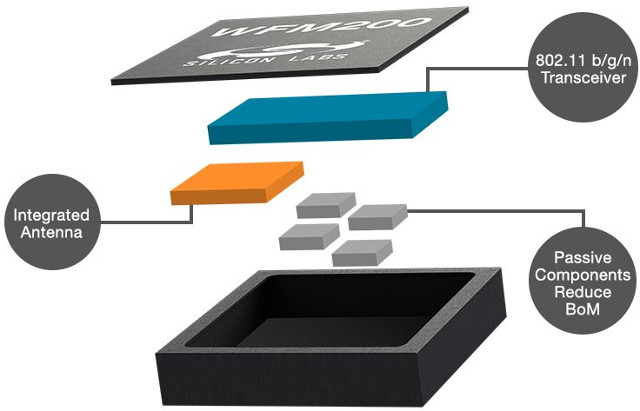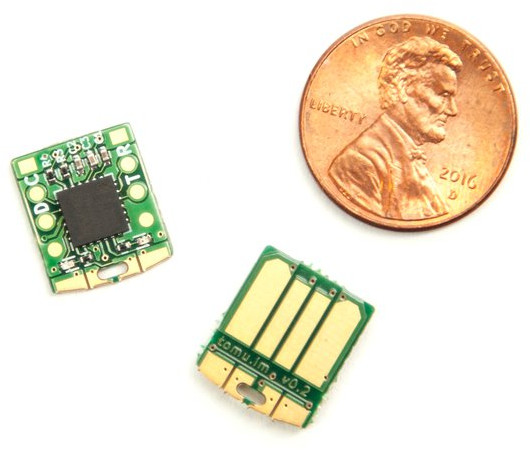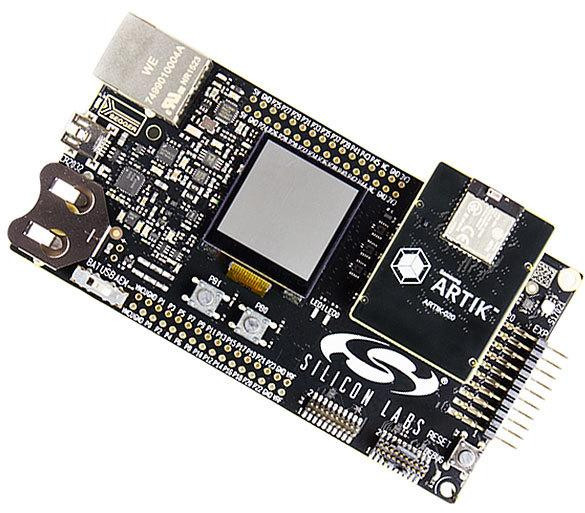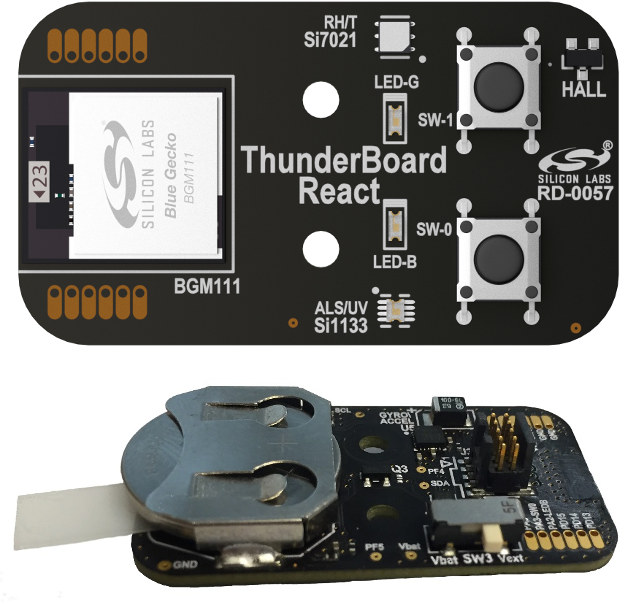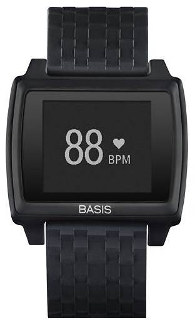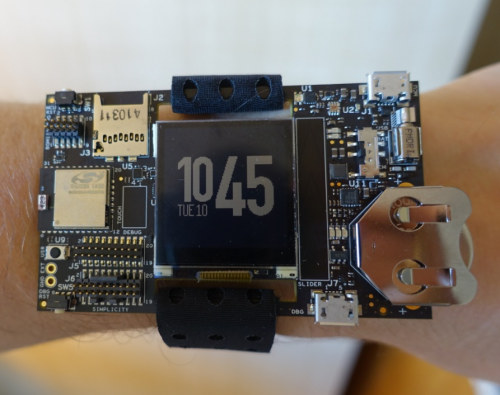When it comes to power consumption, WiFi is not the best wireless standard around, and even the most power efficient WiFi SoCs/modules consume several times the power required for Bluetooth LE Tx or Rx. Yet we still have plenty of battery powered devices relying on WiFi, so companies are working on improving efficiency, and Silicon Labs has recently announced the WF200 transceivers and WFM200 modules that support 2.4 GHz 802.11 b/g/n Wi-Fi and are said to slash power consumption in half. WF200 / WFM200 highlights: Low transmit (Tx: 138 mA) and receive (Rx: 48 mA) power 200 µA average Wi-Fi power consumption (DTIM = 3) Link budget of 115 dBm for long-range Wi-Fi transmissions Excellent antenna diversity and wireless coexistence in crowded 2.4 GHz environments Security – Secure boot and host interface, hardware cryptography acceleration supporting AES, PKE and TRNG Packages – 4 mm x 4 mm QFN32 transceiver and […]
Tomu Arm Board Fits into a USB Connector, Adds Buttons, Two Factor Authentication to Your Computer (Crowdfunding)
We’ve covered many boards that claim to be the world’s smallest development board, and Tomu board does not claim anything like that, but it’s pretty small, as it’s made to fit into your computer’s USB board. It may be cool, but it could also potentially be useful, as the board exposes two (capacitive touch?) buttons, and two LEDs so you can use it as a computer accessory for example to add volume buttons, or as a Universal 2nd Factor (U2F) token supporting two-factor authentication (2FA) to login to compatible online services. Tomu board hardware specifications: MCU – Silicon Labs Happy Gecko EFM32HG309 ARM Cortex-M0+ up to 25 MHz with 64KB flash, 8KB RAM USB – 1x USB 2.0 FS port Misc – 2x buttons, 2x LEDs: 2 (red + green) Dimensions – 1.4mm thick (0.6mm thick PCB) Singapore based Sutajio Ko-usagi – the company behind the project – provides the […]
Samsung Introduces $5 ARTIK 0 and $50 ARTIK 7 Smart IoT Module Families
Samsung unveiled ARTIK 1, 3 and 5 boards for the Internet of Things in 2015, and started to sell them, together with development with WiFi, BLE and Zigbee connectivity earlier this year. The Korean company has now announced two new family with ARTIK 0 modules powered by an ARM Cortex-M MCU and destined to be used in HVAC, lighting, industrial sensors, personal health monitoring and more, as well as ARTIK 7 family powered by an Octa-core Cortex A53 processor, and targeting IoT gateways. ARTIK 0 Family ARTIK 0 family is now comprised for ARTIK 020 with Bluetooth, and ARTIK 030 for applications requiring Thread and/or Zigbee. Beside the different radios, both modules share the same key features: MCU – ARM Cortex-M4 up to 40 MHz with Floating Point Unit, 256KB flash, 32 KB SRAM, advanced hardware cryptographic engine with support for AES-128/-256, ECC, SHA-1, SHA-256, and a Random Number Generator […]
Silicon Labs Introduces $29 Thunderboard React Bluetooth 4.2 LE IoT Board and $69 Derby Car Kit
Earlier this summer, Silicon labs launched ThunderBoard React, a Bluetooth 4.2 LE compliant board with sensors and expansion headers for IoT applications based on the company’s BGM111 Bluetooth Smart Module, and to make it much more fun to work with the company has released a Derby Car kit controlled by the board. ThunderBoard React specifications: Bluetooth Module – BGM111 Bluetooth 4.2 compliant module with integrated Tx and Rx antenna, and Cortex M4 MCU @ 38.4 MHz with 32 kB RAM and 256 kB Flash Extra Storage – Footprint for 8Mb external flash storage Sensors – Si7021 relative humidity and temperature, Si1133 UV index and ambient light sensor, Invensense MPU-6500 6-axis gyro/accelerometer, Si7201 hall effect position sensor Expansion – 12 breakout pina to connect to BGM111 GPIOs Debugging – 10-pin mini Simplicity debug connector Misc – 2x momentary buttons, 2x LEDs, power selection switch Power Supply – CR2032 coin cell battery […]
Intel Smartwatches are Hot! So Hot, They May Burn Your Skin
Low power in constrained spaces is a tricky business, even for ARM based SoCs with the Qualcomm 810 overheating saga a few months ago. Now it’s time for Intel to feel the heat, as the company has has to recall Basis Peak smartwatches / fitness trackers due to potential overheating causing skin burns. Josh Walden – senior vice president and general manager of the New Technology Group at Intel Corporation – stated: On behalf of the Basis Science team, I want to personally apologise for this situation, we know that many of you love using your Basis Peak watches and have made them part of your daily lives, and we are very sorry for the disruption this will cause you, we had hoped to update the software on your watch to address the problem, unfortunately, despite our best efforts, we aren’t able to develop such a solution without completely compromising […]
Thunderboard Wear is a $75 Smartwatch Development Board by Silicon Labs
A few days ago I watched an ARMDevices.net’s video about an ARM’s smartwatch reference design running mbed OS 3.0, powered by a Silicon Labs EFM32 Giant Gecko Cortex M3 MCU, and promising up to 2 months battery life on a 160 mAh battery. While I could not find the full details about the reference design, I noticed Silicon Labs also launched a development board called Thunderboard Wear, based on the same platform, just quite bigger, and still wearable… (Sort of) Thunderboard Wear specifications: MCU – Silicon Labs EFM32GG995F1024 ARM Cortex-M3 MCU up to 48 MHz with 128 kB RAM,1 MB Flash External Memory – 256 kB external SRAM External Storage – micro SD card slot Display – 128×128 pixel Memory LCD from Sharp Connectivity – Bluetooth 4.1 smart module (Silicon Labs BGM111), upgradeable to Bluetooth 4.2 Sensors Ambient Light Sensing (ALS) and Proximity/Gesture via Silicon Labs Si1141. Optical hear-rate monitoring […]


